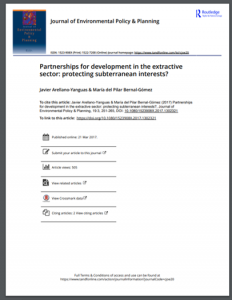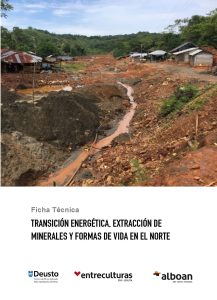Partnerships for Development (PfD) is the antidote that extractive industries have used over the last decade to counteract the proliferation of conflicts with local communities. Normatively, the concept of ‘partnership’ positions companies as actors on an equal footing with others in their attempts to collaborate to achieve development outcomes.
This article analyses how the PfD strategy has been crafted and implemented in the extractive sector and assess its potential to contribute significantly to local development. Using the Foucauldian framework on power/knowledge and genealogy, we explain how, in a relatively shorttime, the interaction between context, preexisting discourses, and actors’ interests shaped the PfD discourse and made it famous. The second part of the paper goes beyond the normative conceptualisation and analyses the implementation of PfD through the case studies of the Antamina copper mine in Peru and the Pacific Rubiales oil operation in Colombia.
The companies use the PfD discourse to advance their interest vis-à-vis the different stakeholders, minimising the risk of conflicts and cultivating their reputation. These companies resort to the fragmentation of bargaining spaces and rely on the legitimacy provided by paid experts. The result is that PfD has limited capacity to promote local sustainable development.





